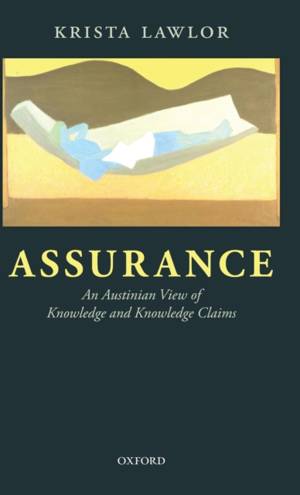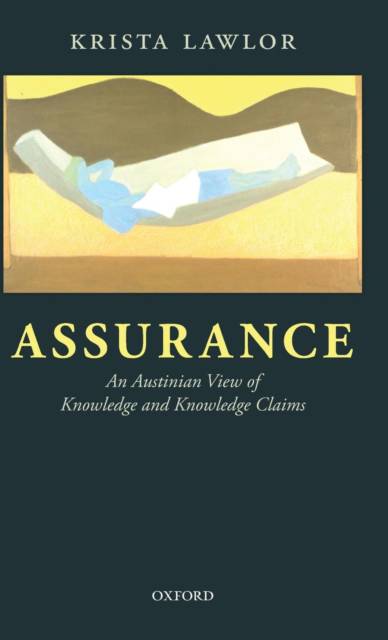
- Afhalen na 1 uur in een winkel met voorraad
- Gratis thuislevering in België vanaf € 30
- Ruim aanbod met 7 miljoen producten
- Afhalen na 1 uur in een winkel met voorraad
- Gratis thuislevering in België vanaf € 30
- Ruim aanbod met 7 miljoen producten
Zoeken
€ 169,45
+ 338 punten
Omschrijving
Claiming to know is more than making a report about one's epistemic position: one also offers one's assurance to others. What is an assurance? In this book, Krista Lawlor unites J. L. Austin's insights about the pragmatics of assurance-giving and the semantics of knowledge claims into a systematic whole. The central theme in the Austinian view is that of reasonableness: appeal to a 'reasonable person' standard makes the practice of assurance-giving possible, and lets our knowledge claims be true despite differences in practical interests and disagreement among speakers and hearers. Lawlor provides an original account of how the Austinian view addresses a number of difficulties for contextualist semantic theories, resolves closure-based skeptical paradoxes, and helps us to tread the line between acknowledging our fallibility and skepticism.
Specificaties
Betrokkenen
- Auteur(s):
- Uitgeverij:
Inhoud
- Aantal bladzijden:
- 240
- Taal:
- Engels
Eigenschappen
- Productcode (EAN):
- 9780199657896
- Verschijningsdatum:
- 5/05/2013
- Uitvoering:
- Hardcover
- Formaat:
- Genaaid
- Afmetingen:
- 137 mm x 216 mm
- Gewicht:
- 417 g

Alleen bij Standaard Boekhandel
+ 338 punten op je klantenkaart van Standaard Boekhandel
Beoordelingen
We publiceren alleen reviews die voldoen aan de voorwaarden voor reviews. Bekijk onze voorwaarden voor reviews.








